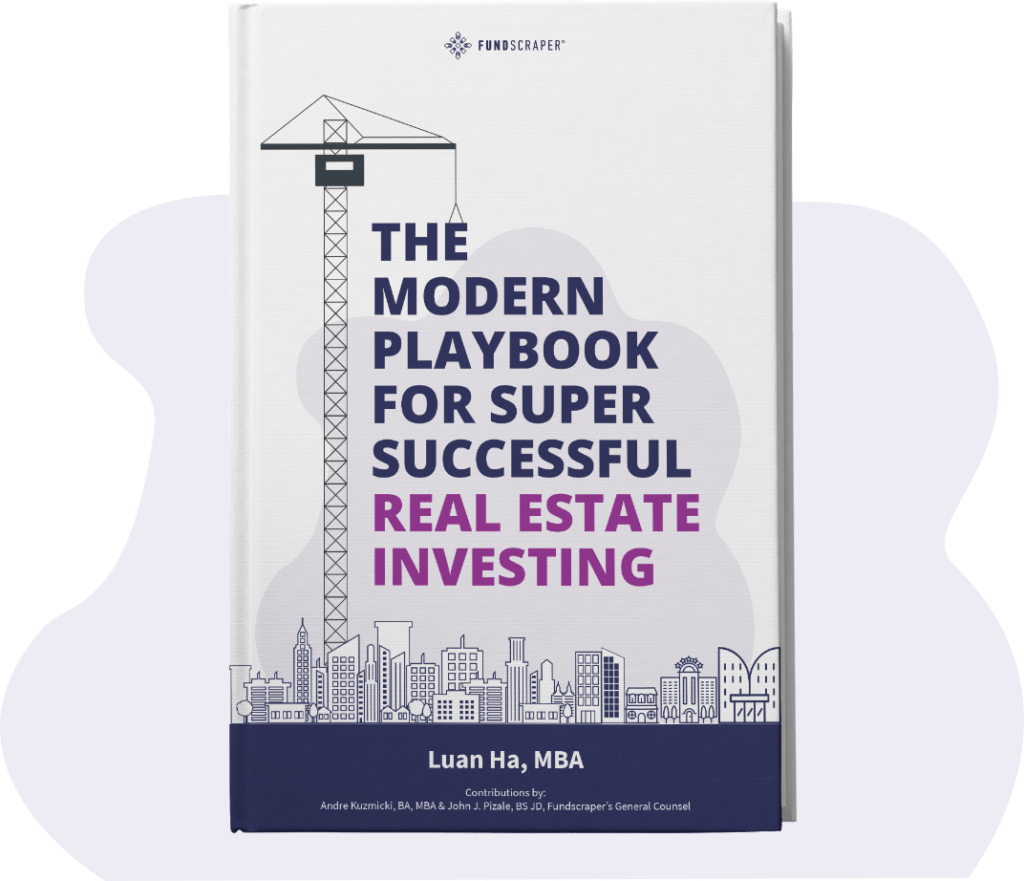What is a Private REIT?
A Private Real Estate Investment Trust or REIT is a tax-efficient vehicle that gives people exposure to a diversified portfolio of income producing properties. Essentially, that means a REIT is a type of investment that allows almost anyone to invest in real estate and indirectly own or finance properties.
Unlike a public REIT, private REITs are sold to investors through specialized dealers in the exempt market like Fundscraper. Private REITs are not traded on a public stock exchange and not required to file a prospectus with the Securities Exchange Commission.
Additionally, there are transfer, redemption, and resale restrictions on those units. Thus, private REITs are not as liquid or transparent as publicly traded REITs on stock exchanges.
REITs are companies that own real estate assets like apartment buildings, office buildings, and shopping centres. When you invest in a REIT, you pool your money with other investors (known as ‘unitholders’) to become a part owner of the trust vehicle.
As a unit holder, you are entitled to the cash distributions derived from cash flow generated from the trust’s holdings of real estate.
The Difference Between REIT and Real Estate Private Equity
A private REIT offers Real Estate Private Equity and Land Development Limited Partnerships. These are both securities that are offered in the exempt market and distributed primarily by way of an offering memorandum (OM).
They may only be purchased by certain investors who qualify for exemption (e.g. accredited investor exemption, eligible investor under the offering memorandum exemption, etc.).
For example, to qualify as an accredited investor, one of the conditions is that your income must be more than $200,000 per year, or a joint salary of $300,000, in each of the past two years and expected to reasonably keep the same level of income.
Under these exemptions, individuals can invest in asset classes traditionally dominated by institutional investors like hedge funds and the ultra-wealthy.
A land development limited partnership (LP) is a security offered to investors to provide them with the opportunity to invest in land development projects versus how a Private REIT enables investors to access a portfolio of income producing properties. Thus, how it works and the risks involved are very different.
To see if you are eligible to invest in private REITs, sign up for a free account today and fill out our quick questionnaire to determine your investor eligibility.
The Private REIT Structure
Let’s break down how the private REIT structure in Canada works. The REIT’s assets can be directly owned by the REIT or through a “special purpose vehicle” (SPV) or through a holding company (holdco) that, in turn, holds such SPVs.
SPV
A SPV is a company in which either a REIT or holdco, holds or proposes to hold, an equity stake or interest of at least 50%. The SPV holds at least 80% of its assets, directly in properties, and is not allowed to invest in any other SPVs nor engage in any activity, other than holding and developing a property and any incidental activity relating to such holding or development.
Holdco
A holdco is a company or or an limited liability partnership in which the REIT holds or proposes to hold an equity stake or interest of at least 50% and which, in turn, has made investments in other SPV(s), which ultimately hold the real estate property or properties.
The holdco does not engage in any other activity other than holding of the underlying SPV(s), holding of real estate or properties and any other activities pertaining to and incidental to such holdings.
4 Benefits of a Private REIT in Canada
Every real estate investment has its own set of risks. While reviewing private REIT offers, here are some of the important pros and cons to consider.
Pros | |
|---|---|
Stable and Tax Efficient Income | Private REITs can potentially offer target total returns ranging from 10-13% and cash yields from Most private REIT investments are relatively well diversified depending on their portfolio size and aim to provide reliable distributions: One of the many government tax regulations requires REITs to pay out 90% of income to unitholders. In return, they’re generally exempt from paying corporate taxes on their earnings. This helps distributions ‘flow through’ to investors and are only taxed once at the individual level instead of twice in typical corporate investment structures. This flow through makes investing in private REITs tax efficient and beneficial for investors. |
Diversification | If your investment portfolio consists of only stocks and bonds, you’re missing out on critical diversification from real estate investments. Private REITs in particular have low correlation to the stock market and can be a hedge against inflation. |
No Property Management | We often consider real estate a passive form of investing. However, if you buy a property and rent it out to a negligent tenant, it can be a huge time suck managing delinquent tenants. Private REITs help you avoid being a property manager altogether with professional asset and property management. |
Cons | |
|---|---|
Illiquidity | You can exit your holdings of a public REIT at any time (so long as the market is open), but it’s not that simple to liquidate your holdings of a private REIT. Many private REITs are ‘closed funds,’ meaning you can’t sell or redeem units without penalty until a specific amount of time has passed – often a few years in the future or you have no ability to redeem units at all. If you view real estate as a long term investment and don’t need your initial funds back in the short term, this might not be an issue. But if you foresee needing access to your funds, private REITs may not be the right choice for you at this time. |
Lack of Control | Some investors prefer to have more control over their investments. Unlike when you buy a home and rent it out, as a unitholder of a REIT, you will have no say in what properties the REIT invests in and where they’re located. While you don’t get to scope out the property first, you rely on the trustees and professional management will steer the course adequately. Related to the above liquidity restrictions, you may not be able to control when you are able to redeem or sell your units. |
Property and Asset Class Specific Risks | REITs tend to specialize in a specific type of property or asset class, such as an office building REIT will focus primarily on owning and acquiring office assets. Each type of property has risks associated with it and is susceptible to different economic conditions, so it helps when your management team can focus on the same type of asset class across the whole portfolio. |
If you’re interested in reviewing a private REIT list, download our Private REIT comparison chart here, which outlines all the available private REITs in our marketplace.
How to Start a Private REIT in Canada
Are you looking at how to start a private REIT in Canada? Starting a private REIT is no walk in the park. Companies owning or financing real estate must meet a number of organizational, operational, distribution and compliance requirements to qualify as a real estate investment trust (REIT).
These rules govern issues such as dividend distributions and the composition of a company’s assets. Starting a REIT is not simple but professional help is always available.
Fundscraper is your trusted capital, compliance and technology dealer.
As an Exempt Market Dealer (EMD), we help investors, issuers, private lenders, mortgage brokers, and mortgage syndicators navigate the complex legal landscape, and remain compliant with Canadian Securities Laws.
If you need any assistance with REITs in Canada, check out our Investment Marketplace or contact us today for more information.










